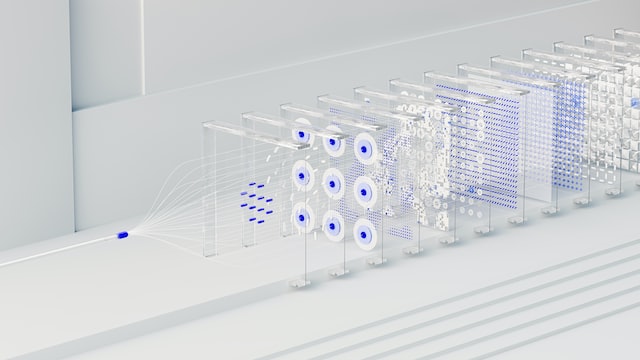Can you sell AI generated art? The short answer is yes. However, the long answer requires a more nuanced approach. Artificial intelligence (AI) has become a powerful tool for artists, allowing them to create previously impossible works. But with this newfound power comes questions about the authenticity and value of AI-generated art.
At first glance, AI-generated art may seem like a novelty or a gimmick. However, the technology behind AI art is advancing rapidly, and it is quickly becoming a legitimate art form in its own right. AI art is created by algorithms that are programmed to generate images based on specific parameters. These parameters can be anything from color schemes and shapes to more complex criteria like emotions and concepts.
One of the main advantages of AI-generated art is its ability to create vast amounts of unique artwork quickly. This is because algorithms can generate an infinite number of variations based on the same parameters, giving artists an almost unlimited supply of source material to work with.
Another advantage of AI-generated art is its potential for collaboration between humans and machines. Artists can use AI algorithms as a tool to inspire and inform their creative process, leading to new and unexpected results.
However, AI-generated art also raises questions about the role of the artist in the creative process. Critics argue that AI-generated art lacks the human touch and emotional depth that are essential to traditional art forms. They also argue that because AI-generated art is created by algorithms, it is not truly original and therefore lacks authenticity.
Despite these concerns, there is a growing market for AI-generated art. Collectors and galleries are beginning to recognize the potential of AI art, and prices for AI-generated works are starting to rise. In 2018, an AI-generated artwork sold at auction for $432,500, and in 2019, a digital artwork created by an AI algorithm sold for over $400,000.
So, can you sell AI-generated art? The answer is yes, but with some caveats. To sell AI art successfully, it is essential to have a clear understanding of the technology behind it and its artistic value. It is also important to be transparent about the fact that the artwork is created using AI algorithms and to be upfront about the parameters used to generate the work.
Ultimately, the success of AI-generated art will depend on how it is perceived by the art world and the broader public. As AI technology continues to advance, AI art will likely become increasingly accepted as a legitimate form of artistic expression.
In conclusion, the question of whether you can sell AI-generated art is a complex one that requires a nuanced approach. While there are legitimate concerns about the authenticity and value of AI art, there is also a growing market for it. As with any new art form, the key to selling AI art successfully is to understand its unique qualities and to be transparent about its creation process.
Notice: Information contained herein is not and should not be construed as an offer, solicitation, or recommendation to buy or sell securities. The information has been obtained from sources we believe to be reliable; however, no guarantee is made or implied with respect to its accuracy, timeliness, or completeness. Authors may own the cryptocurrency they discuss. The information and content are subject to change without notice. Visionary Financial and its affiliates do not provide investment, tax, legal, or accounting advice.
This material has been prepared for informational purposes only and is the opinion of the author, and is not intended to provide, and should not be relied on for, investment, tax, legal, accounting advice. You should consult your own investment, tax, legal, and accounting advisors before engaging in any transaction. All content published by Visionary Financial is not an endorsement whatsoever. Visionary Financial was not compensated to submit this article. Please also visit our Privacy policy; disclaimer; and terms and conditions page for further information.

